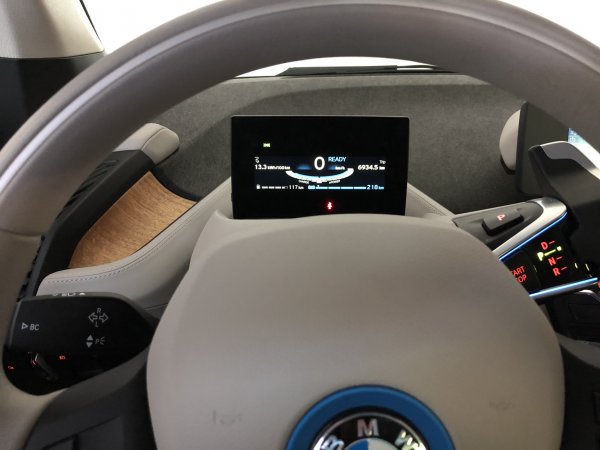I am using myself BMW i3 for our secondary residence in France. We received the incentive from French goverment of around 6 th euro, the registration ( la carte grise) was for free instaed of 800 euro , the insurance is 50 % of the standard fee.
We love the car, equipped with range extender( a smal petrol engin which works as a generator to charge the batteries) so we can reach the driving range of ca 350 kms in the warm climat.
As most of French cars it is small but quiet and with very good accelaration which makes the drive enjoyable. Moreover at commercial center the best parking places at entrance ( Geant Casino) are reserved for EVs
In our area it is a perfect city and small distance car, from Menton to St Tropez, we are close to Cannes.
As a main car in Poland I drive the third generation RX hybrid and I think this is for time being the best solution for the range, fuel consumption and comfort.
After 7k kms done with i3 our average energy consumption is 13,3 kWh plus some 20 l of gas which result in around 2,5 euro for 100 kms, I charge the car in the nights at home with the cheaper tarrifs ( les heures creuses).
But for the main car I would not recommend electric, it’ s too soon, unless you need only a city car.
We love the car, equipped with range extender( a smal petrol engin which works as a generator to charge the batteries) so we can reach the driving range of ca 350 kms in the warm climat.
As most of French cars it is small but quiet and with very good accelaration which makes the drive enjoyable. Moreover at commercial center the best parking places at entrance ( Geant Casino) are reserved for EVs
In our area it is a perfect city and small distance car, from Menton to St Tropez, we are close to Cannes.
As a main car in Poland I drive the third generation RX hybrid and I think this is for time being the best solution for the range, fuel consumption and comfort.
After 7k kms done with i3 our average energy consumption is 13,3 kWh plus some 20 l of gas which result in around 2,5 euro for 100 kms, I charge the car in the nights at home with the cheaper tarrifs ( les heures creuses).
But for the main car I would not recommend electric, it’ s too soon, unless you need only a city car.
Attachments
Last edited:


